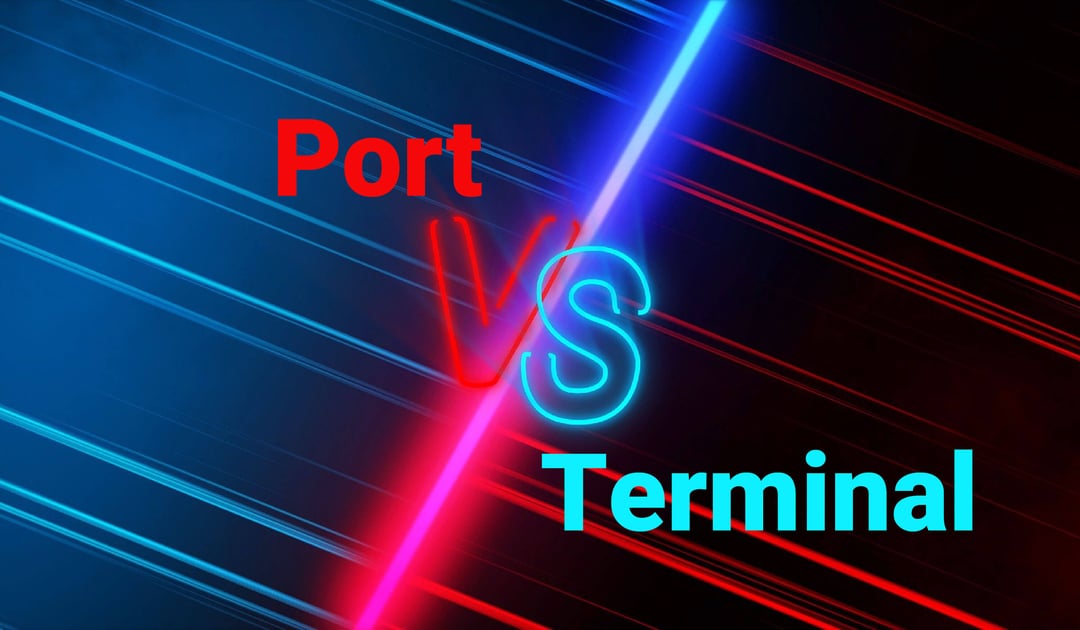The difference between a terminal and a port in logistics and supply chain parlance goes beyond maritime versus landlocked. In essence, a port refers to a waterfront facility - aka a marina - where vessels (steamships/freighters/container ships/etc.) dock to facilitate loading and unloading of goods (and people who use these ships as well). A terminal on the other hand both refers to multiple locations within a port (more on that later), and using the more common - and still logistics-related - definition, a terminal can also refer to a facility independent of a port where trucks and/or railroads handle that same loading and unloading of goods.
What is the function of a port?
A port in logistics functions as a hub of international shipping in particular. According to the EPA, more than 95% of cargo comes into the U.S. via ship. And only at the port can three of the four major transportation modes - ocean, truckload, and railroad - come together. Because of this, the port is where loads take a vital next - and sometimes last - step as they make their way to their final destination.
Ports are where containers are transferred from ships to trucks (and sometimes rail directly) - and vice versa. Transloading also takes place at the port in many instances as loads shift from ocean containers to intermodal or truckload. Ports also handle customs and security checks of loads both entering and leaving the country. Loads may be stored at the port due to customs clearance issues or for other reasons as well - and can incur fees because of it. Ports are also typically where maintenance activities take place, especially when it comes to cargo ships. An important note: many of the activities we've just outlined actually take place at terminals within a port.
What is the function of a terminal?
The function of a terminal - whether at a port or on its own - is to serve as a location where goods are loaded/unloaded and transferred onto their next step. This activity occurs in ports, which often house multiple terminals. Within a port, a terminal is often specialized by the type of load - for instance produce, gas & oil, and automobiles would go through different terminals at a larger port. These specialized terminals are where more detailed inspection and processing take place.
However, a terminal also refers to a standalone inland facility where transfers of loads take place - sometimes truck to truck, sometimes rail to rail, and sometimes truck to rail. These terminals are also where goods may be transferred from semi-trucks/containers onto delivery trucks or vans to head to their final destination. Specialized terminals may offer temporary storage options both for the load and transportation types that utilize them. Terminals of this type also typically include maintenance services, as well as trucks for hire.
Your shipments will likely use both ports and terminals, and having experts on your side helps get them through as smoothly as possible. We're happy to provide that expertise, simply let us know, and we'll follow up to discuss your company's unique needs.
Visit our Learning Center for more definitions of logistics terms and in-depth information about all things freight and shipping. And feel free to check out a few more links below:



